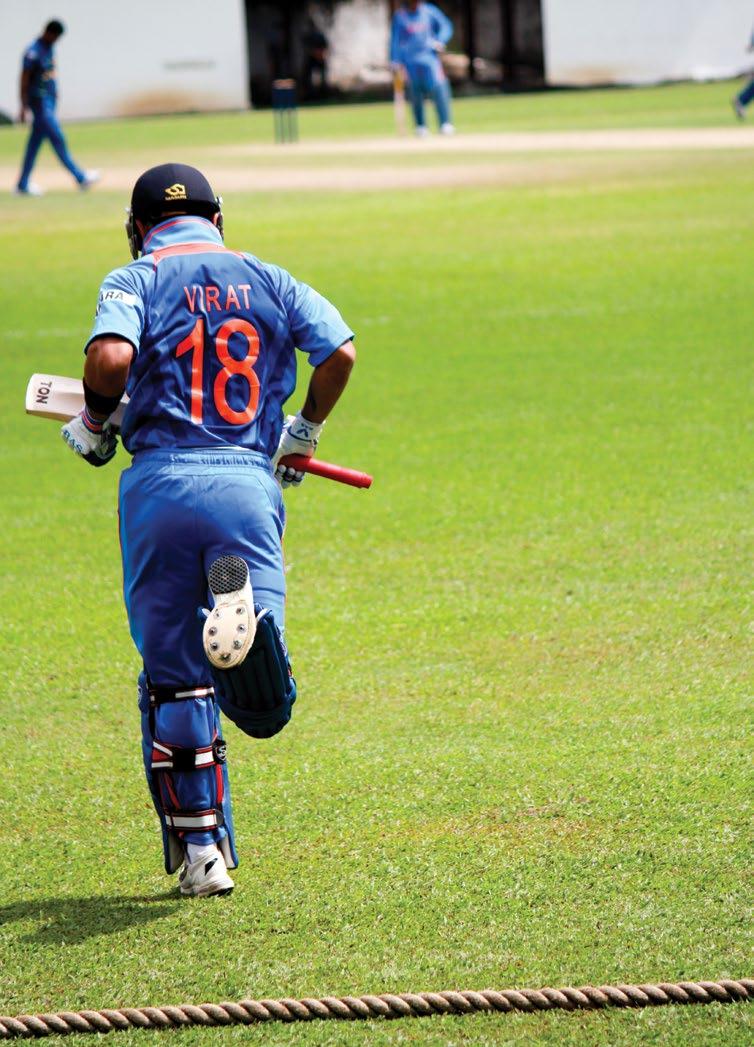
4 minute read
INDIA
Shaping sports betting legislation
Popular Indian politician, Shashi Tharoor, a member of the main opposition Congress Party, stirred the political pot earlier this year by introducing a private member’s bill into parliament calling for the legalisation and regulation of online sports betting. While the bill isn’t expected to pass in its current form, it was seen as an important step in firing up the debate on the issue in India, which is seen as one of gaming’s last great untapped frontiers. Mr Tharoor spoke to Asia Gaming Brief about his rationale for introducing the bill and the likely next steps.
Advertisement
The 16th Lok Sabha has been dissolved and all the pending bills have lapsed. Will you reintroduce the bill when the Parliament reconvenes?
The composition of the 17th Lok Sabha will determine the future course of action for my legislative work. However, whether I am in the opposition benches or part of the treasury benches, I will try to push for steps to improve the integrity of sports based on the principles enunciated in The Sports (Online Gaming and Prevention of Fraud) Bill, 2018.
Private Member bills have a low chance of being turned into Acts. Is the intention behind the introduction of such a bill to have the issue debated in the Parliament as well as on other platforms?
The purpose of my Private Member Bill is to initiate a public discussion on issues which require some form of legislative redressal. This in turn will help bring the topic to the attention of the Government. It also provides an opportunity for the Government to bring a Bill of its own, based on the basic principles enunciated in a Private Members Bill.
Is the honorable MP open to discussions with a body like AIGF, which has been working for the legalisation/ regulation of the industry?
I did speak to the AIGF and experts in the field of sports law, during the drafting process of The Sports (Online Gaming and Prevention of Fraud) Bill, 2018. Their inputs and comments were useful. Legislation must be prepared after consulting relevant stakeholders. However, Government departments have greater flexibility in holding pre-legislative deliberations, whereas the extent of consultations an individual MP can undertake is fairly restricted. Unfortunately, most laws are made in our country without comprehensive consultations.
Should online gaming and sports betting be regulated at the central level and offline gambling at the state level, keeping in mind the local conditions? Does the honourable MP believe there should be, in due course, regulation/legalisation of offline gambling too at a central level?
The Constitution of India empowers the States to make laws on “Betting and Gambling,” as it is enumerated in Entry 34 of List II of the Seventh Schedule. The Law Commission of India in its 276th Report recommended the regulation of betting activities, and noted that the Parliament can enact a law under Entry 31 of List 1 of the Seventh Schedule (telecommunication) to regulate betting on sports which takes place through a telecommunication device or online betting. Given the legislative limitations, my Bill only deals with online sports gaming.
Ideally, a consolidated approach is needed. This can be fulfilled if the Centre takes the initiative to take all the States along to implement similar legal frameworks across all the States in relation to betting and gaming. Otherwise, a constitutional amendment is required to bring this subject under the purview of the Parliament. Under the present constitutional design of governance, a central law on offline gambling is not possible.
Would it be possible in the long term, in the view of the honourable MP, to bypass entrenched views in the society looking down on gambling as an immoral activity?
I have always argued in favour of individual liberty and the need to dismantle outdated laws which reenforce paternalism. Due to the fact that the State views betting and gambling from a moralistic sense, it made laws to suppress it. However, instead of changing human behaviour, the laws only pushed the betting sector into the black market and brought it under the control of rackets and crime syndicates. Regulation of this sector, rather than its prohibition, can help increase revenue for the State, encourage investment and generate employment. It will also make it easier to identify criminal elements and reduce the generation of black money. I believe it is possible for us to work towards a State, which mainly enforces constitutional morality, rather than majoritarian morality.
Delta invests $10m in cruise ship business
Delta Corp has announced it is investing $10 million into Essel Group’s cruise liner business, which will allow it to get preferred rights to operate casinos on board, according to a filing.
The agreement involves Gaussian Software Pvt Ltd, a wholly-owned subsidiary of Delta Corp to subscribe to 10 million shares of Jalesh Cruises Mauritius (JCML) – which will allow Delta to eventually hold over a 25 percent stake in the company.
The cruise ships operated by JCML service a number of destinations from India and the Middle East – and include various entertainment and hospitality venues, including casinos and gaming centers.
Investors eye i-gaming startups
India’s gaming startups are continuing to attract strong interest from overseas investors, with recent deals involving funding from the U.K. and Japan.
Sports Gaming UK, the parent company of India Bet, has invested in India fantasy sports startup PlaySafe Games Pvt Ltd. for an undisclosed amount, while eSports start up GamingMonk has raised $100,000 from a listed Japanese firm, G.Laws reports. PlaySafe is the operator of fantasy gaming site Scoring11.
The acquisition will give Sports Gaming a 20 percent stake in PlaySafe Games, with the remaining 80 percent of shares in the company held by India Bet head of operations CEO Harshit Mehta.
Esports startup GamingMonk raised funds from Japan’s GameWith.










